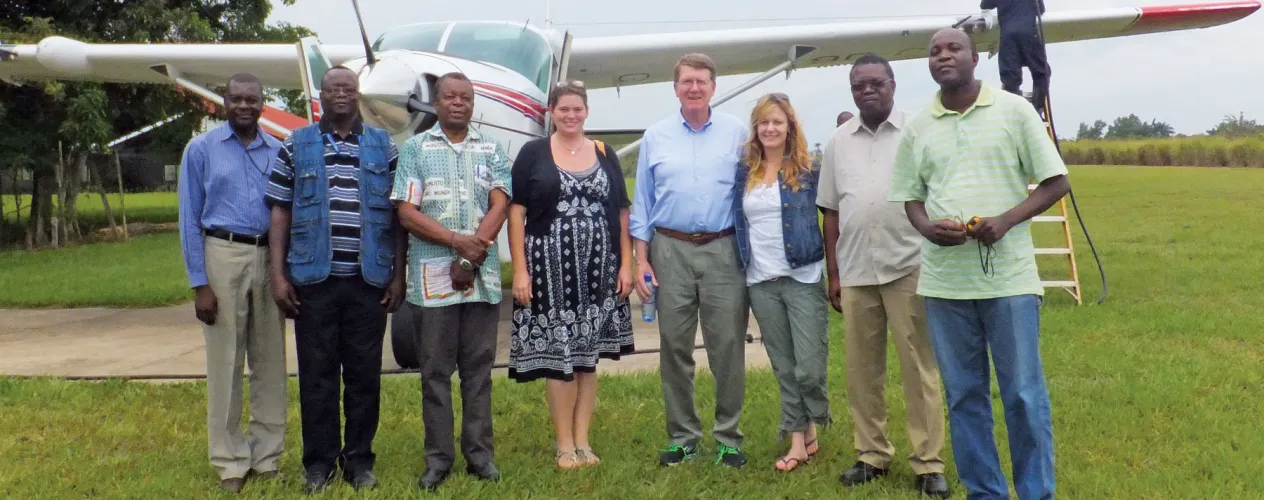Preventing the Next Pandemic
Visionary support puts FSPH at the forefront of prevention in the Democratic Republic of the Congo, one of the world’s most complex, important hubs of disease emergence.

WHAT IF WE HAD THE CAPACITY to respond to emerging infectious diseases immediately in one of the most critical disease hotspots in the world? How many pandemics might be prevented? How many millions of lives might be saved?
These are the questions driving the efforts of Dr. Anne Rimoin (MPH ’96), associate professor of epidemiology and director of the FSPH-based UCLA-DRC Health Research and Training Program in the Democratic Republic of the Congo (DRC). When it comes to the immense task of tracking, mapping and preventing a pandemic, time is of the essence. “Every day countless viruses are mutating, evolving and spilling over into human populations,” Rimoin notes. “And at any moment, one of them could spark an outbreak that, uncontained, could spread like wildfire.”
The visionary support of Carol and Russell Faucett through the Faucett Catalyst Fund equips Rimoin and the UCLA-DRC team with the ability to act quickly and effectively. Since the program’s inception in 2004, the team has established a permanent presence in the DRC. “The UCLA-DRC program is unlike any other in the world because we had the support of someone ready and able to fund things like infrastructure and the ability to build lasting relationships, and to be prepared for the present while training for the future,” Rimoin says. “Private philanthropy is what allows us to be in the DRC full time, on the ground and ready to respond to the next outbreak in real time.”
With the unwavering commitment made possible by the Faucett Catalyst Fund, the UCLA-DRC team emphasizes the importance of working with local communities and ensuring a sustainable approach to prevention via research and training. Through the Faucett Fellowship, FSPH master’s and doctoral students get hands-on experience in the field: investigating outbreaks, conducting surveys, training health care workers, and establishing vital relationships with the community and local decision makers. The program has also trained the next generation of local public health leaders and epidemiologists in the DRC through a partnership with the Kinshasa School of Public Health, and has employed a number of people who are Congolese as lab technicians and managers, biologists and researchers.
In light of the U.S. Centers for Disease Control and Prevention’s announcement in 2018 of an unprecedented 80 percent reduction in its epidemic prevention activities in 39 countries, including the DRC, the support of the Faucett Catalyst Fund is invaluable in preventing the next infectious disease threat. Yet, as governmental sources of funding dwindle and media attention to the region fades, there remains a pressing need for private philanthropy to help expand the UCLA-DRC program’s reach. To encourage others to make an impact on global health, the Faucett Catalyst Fund is offering to match dollar-for-dollar each gift in support of the UCLA-DRC program through December 31, 2018. To participate, please visit ucla.in/2L0YoCS.